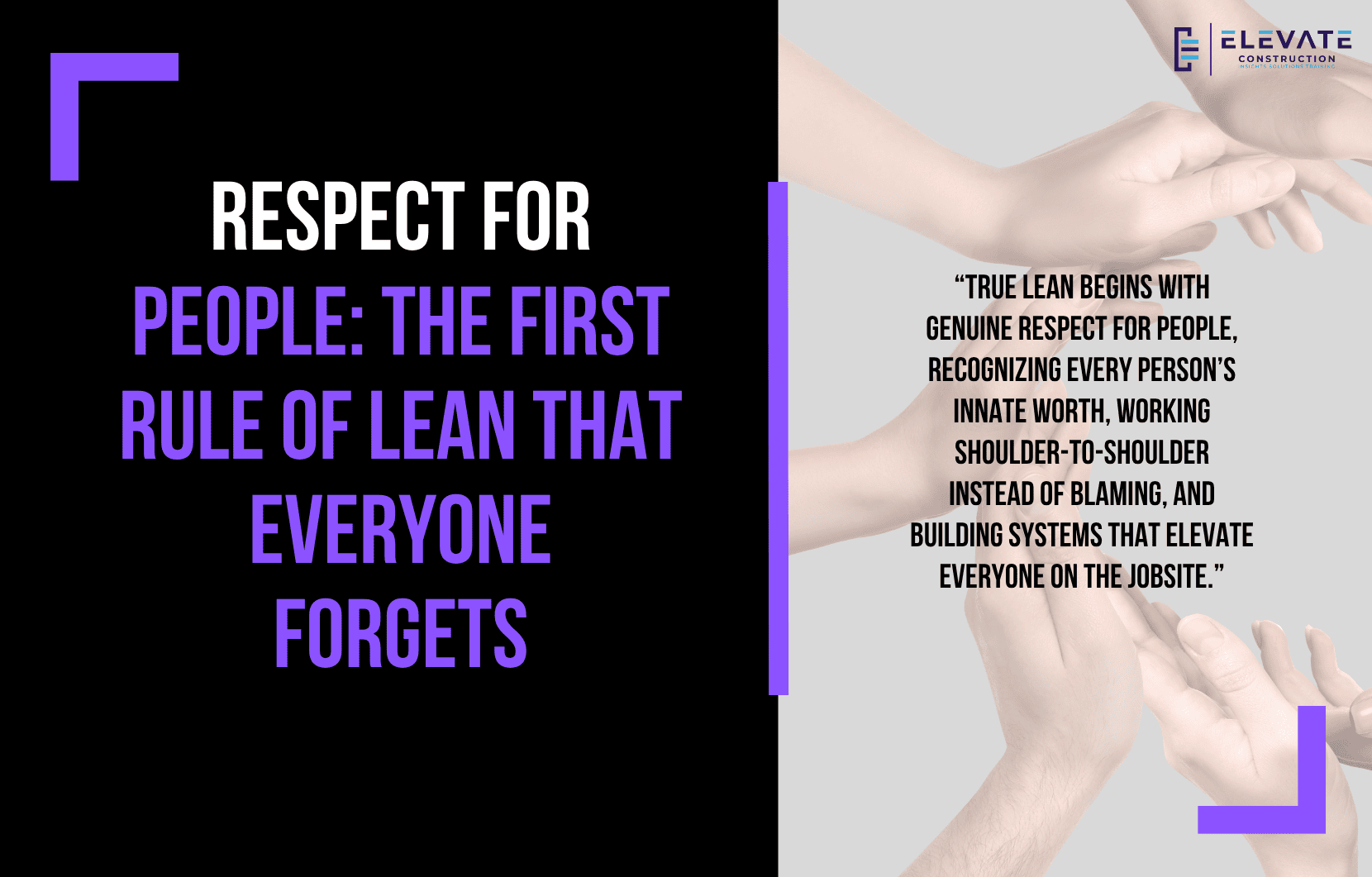Respect for People: The First Rule of Lean That Everyone Forgets
Respect for people – the first rule of Lean that everyone forgets. In this blog, I’m sharing my experience from traveling to Japan with Paul Akers and several others from our company. I’ll walk you through what I learned firsthand about what “respect for people” and “respect for resources” truly mean, how I plan to bring those lessons back into my life, and how we can implement these ideas across the Western world to improve construction everywhere we go.
A Different Perspective
Let’s start with something that might surprise you. After World War II, the United States along with other nations helped rebuild Japan. Experts like W. Edwards Deming introduced production systems, statistical thinking, and educational methods that laid the foundation for Japan’s modern excellence.
So, when we go to Japan today and admire their “amazing” Lean concepts, we’re not just learning about Japan, we’re re-learning lessons that originated from our own forgotten principles. True Lean is about learning from other cultures, adopting what works, and innovating from there.
Respect for People
The Japanese phrase often translated as “respect for people” can also mean respect for humanity or respect for someone’s inherent value. During the trip, I learned how deeply rooted this mindset is and how it shapes everything in their culture and work ethic.
Before the trip, I had to prepare rigorously: reading books, completing training, and even working up to 100 push-ups a day. Yet the biggest takeaway wasn’t physical endurance, it was understanding that “respect for people” is not just a slogan. It’s a way of life.
In Japan, everyone believes that every person has innate worth. Problems are blamed on the process, not the person. The goal is to elevate everyone together. I didn’t see a single homeless person. Instead, I saw a society where people take responsibility for one another.
Everyday Examples of Respect
One of my favorite moments was watching how Japanese schoolchildren help each other. When someone falls behind, classmates rally to lift them up. The concept of “left behind” simply doesn’t exist there.
Even in small interactions like when I tried to buy a gift and couldn’t communicate in Japanese, a kind, elderly man ran off to find someone who could help. He was genuinely happy to do it. That level of human consideration is everywhere.
Paul Akers shared similar stories, people dropping what they were doing to guide him personally to where he needed to go. It’s not occasional kindness; it’s built into their cultural DNA.
Shoulder to Shoulder
The phrase “shoulder to shoulder” captures what I witnessed in Japan. Leaders don’t stand above people; they stand with them. Instead of blame or punishment, they work side by side until the problem is solved.
That idea changed the way I see leadership, both as a parent and in construction. I texted my kids from Japan and said, “From now on, I’ll work with you shoulder-to-shoulder.”
On a construction site, this mindset translates into:
- Clean bathrooms and lunch areas.
- Respectful communication.
- Helping others instead of yelling or blaming.
It’s about creating systems that uplift everyone involved because every person has value that can never be thrown away.
The Challenge
Here’s my challenge to you:
What can you do on your construction sites tomorrow to elevate respect for people and respect for resources? These are two separate but equally vital aspects of Lean and both must exist if we want true continuous improvement.
Key Takeaway
True Lean begins with genuine respect for people, recognizing every person’s innate worth, working shoulder-to-shoulder instead of blaming, and building systems that elevate everyone on the jobsite.
If you want to learn more we have:
-Takt Virtual Training: (Click here)
-Check out our Youtube channel for more info: (Click here)
-Listen to the Elevate Construction podcast: (Click here)
-Check out our training programs and certifications: (Click here)
-The Takt Book: (Click here)
Discover Jason’s Expertise:
Meet Jason Schroeder, the driving force behind Elevate Construction IST. As the company’s owner and principal consultant, he’s dedicated to taking construction to new heights. With a wealth of industry experience, he’s crafted the Field Engineer Boot Camp and Superintendent Boot Camp – intensive training programs engineered to cultivate top-tier leaders capable of steering their teams towards success. Jason’s vision? To expand his training initiatives across the nation, empowering construction firms to soar to unprecedented levels of excellence.
On we go

